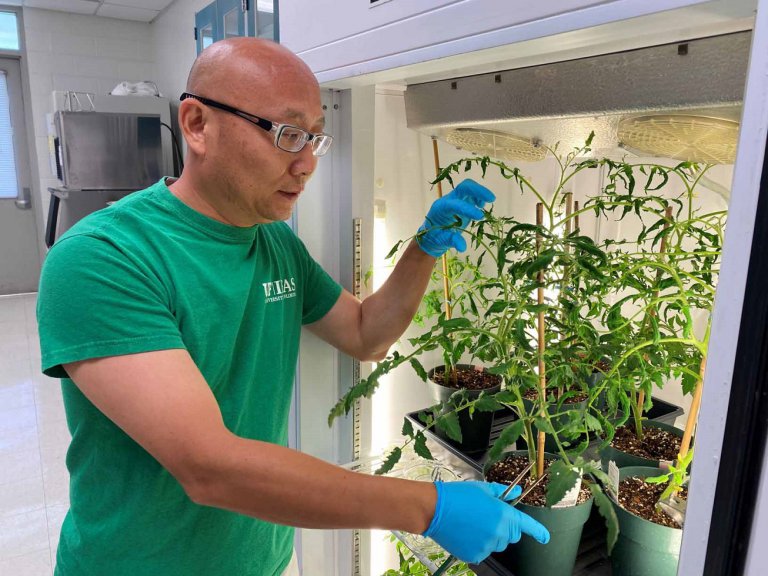
Challenges are not uncommon for vegetable and specialty crop producers. Rising imports and high input costs are just a couple. But what about climate change?
“The environment has a huge impact on plant health and reproduction,” said Alfred Huo, UF/IFAS assistant professor of plant breeding. “Plants respond to environmental cues, like temperature, to flower and reproduce in an adaptive manner. Temperatures can affect seed development through posing effects on their mother plants, resulting in seeds with varied quality. Some will germinate and grow, and some will not. Farmers and growers expect uniform seed quality, but variable quality due to environmental factors like high temperature, causes poor plant population establishment, and farmers experience big economic losses.
“Seed quality and plant vigor are heavily dependent on where the seed was produced and can be inconsistent,” Huo added. “Seeds produced in Chile are very different than those produced in Mexico or Canada. Seed germination rate and vigor varies a lot based on the seeds’ origin and can impact farmers greatly. We try to understand why and how genetic and environmental factors, like temperature, impact seeds to help bring consistency to farmers.”
Huo, at the UF/IFAS Mid-Florida Research and Education Center, along with three other scientists at the University of California-Davis, were awarded a $1.1 million Foundation for Food and Agriculture grant. It allows researchers to examine how increased temperatures impact development of tomato fruit and seeds.
“Each researcher involved in this project has a different objective,” he said. “The principal investigator of this project, Kent Bradford, professor at UC Davis, will work on seed physiology; another will work on how temperature affects tomato fruit development; and the third will examine the effect of temperature on pollen viability and pollination of tomatoes. At UF/IFAS, we will investigate how small RNAs – a type of short, tiny nucleotides – are responsive to different temperatures experienced by the mother plant during seed development.
“Field grown tomato crops are often established from transplanted seedlings,” Huo added. “Nurseries and transplant growers will also benefit from our study through greater seedling vigor and uniformity, which greatly increases their operational efficiency. From our research, seed companies will better understand how the genetics of their cultivars and variable growing conditions during seed production interact to influence the quality of seeds produced.”









